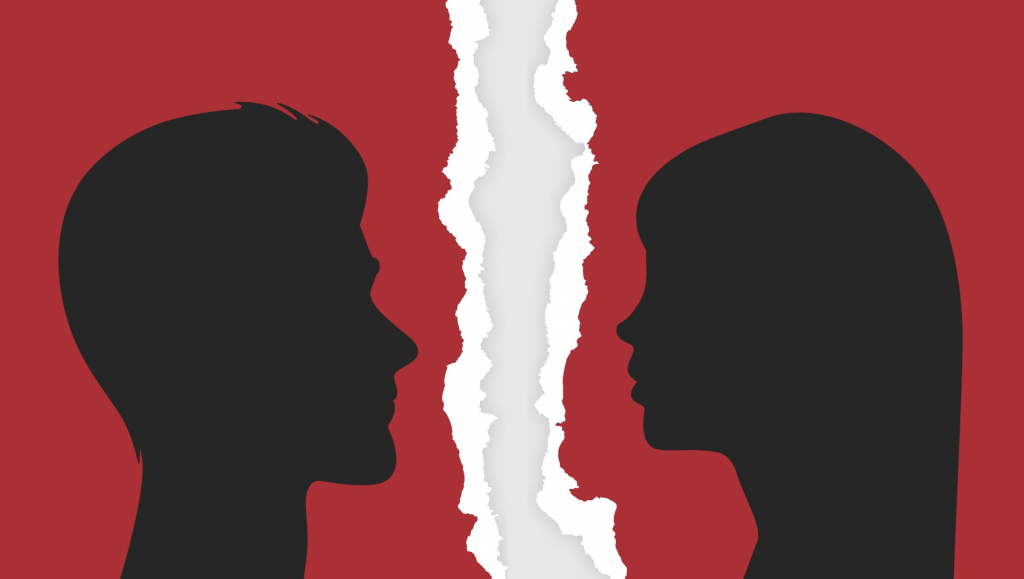
It isn’t the mountain ahead that wears you out; it’s the grain of sand in your shoe.
– Robert W. Service (1927).
The paper by Bhattacharyya et al. (2023) reviewed in this blog examines the correlation between stressful life events and psychosis. The focus of the examination was exposure to, and number of stressful events following the onset of psychosis, and if stressful events impact on relapse. Whereas psychosis regards mental distress shaping thoughts and emotions to the severity of distorting a usual sense of reality, the authors define relapse as a hospital admission. The quote starting this blog, therefore, considers not the great life obstacles but the straw that broke the camel’s back, whereby stress accumulates over time and gradually leads to ill-health.
Stress vulnerability and psychosis is a well-recognised phenomenon, commencing with the work of Zubin and Spring (1977) and the stress vulnerability model. The model illustrates that as stressful life events increase so could experiencing psychosis. On the other hand, the World Health Organisation (2023) characterises stress as worry triggered by difficult situation(s). This can involve employment difficulties, drug use, and relationship issues to name a few, while genetics also play a part. Given stress is subjective, problem-solving can be helpful alongside emotional support to mitigate the stressfulness of these events.
It can be difficult to determine if stressful events lead to psychosis and/or psychosis increases stressful life events. Hence, the study’s aim was to explore these factors alongside the impact of stressful life events following the onset of psychosis, and the relationship between relapse within two years. Included within the analysis were social determinants and clinical factors to account for variances that could shape the results, while some unmeasurable variables such as genetics were also considered. Essentially, a hypothesis was tested that stressful events following the onset of psychosis correlated to risk with hospital admission depending on the dose-response effect. That is, increasing levels of exposure to stressful events escalate the risk of psychosis, or by reversing the directionality of effect, psychosis increases the risk of stressful events.

Stressful life events following the onset of psychosis have been associated with relapse of psychosis, but whether this is a causal relationship is unclear.
Methods
Following ethical approval, the study adopted a prospective cohort methodology, which investigates people with some similar attributes but over time, and may differ demographically. Individuals aged 18-65 with first episode of psychosis were recruited from an NHS Trust in London UK. The brief life events questionnaire (Brugha and Cragg, 1990) and WHO Life Chart Schedule (Susser et al., 2000) were used to collect the data for the study, with initial and follow-up interviews. The former tool identified stressful life events and the latter documented the number and duration of admissions, and if detained in hospital.
Statistical packages aided data analysis, amongst which, plotting the trajectory of stressful events and hospital admission, which considered variables such as medication adherence. The findings were determined by statistically testing the probability of the researchers’ hypothesis. When probability was under 5% denoted in the paper with a p-value, results were less likely due to chance, while the opposite was true if over 5%. Hence the former confirmed the hypothesis whereas the latter did not (Shreffler and Huecker, 2023).
Results
Key demographic details and relapse results
|
Total recruitment |
Drop out |
Male/ Female |
Ethnicity |
Relapse |
Most hospital admissions |
Longest stay |
|
256 |
133 |
Male n=256 |
Asian n=16 |
n=92 |
3x |
14·8 months |
| Female n=100 | Black African or Caribbean n=140 | |||||
| White n=86 | ||||||
| ‘Mixed ethnicity’ n=14 |
- Demographic differences in the table and characteristics such as medication adherence did not appear to impact the results
- There was a statistically significant link between the number of stressful events and relapse in psychosis
- Drawing on the List of Threatening Experiences questionnaire by Brugha et al. (1985), these stressful life events included:
- bereavement,
- breakdown in an intimate relationship, and
- experiencing theft or loss of something valuable
- At least one stressful life event increased the risk of relapse within a 2-year period following the first episode of psychosis
- Stressful life events appeared more impactful following the onset of psychosis than compared to before being diagnosed with the condition
- The statistical analysis correlated an increase in hospital admission with increasing stressful life events
- This study found no relationship between psychosis increasing the likelihood of stressful life events
- In addition, the authors proposed that the number of relapses did not correlate to the patients having more stressful life events, although no specific figures were provided.

The research found strong links between stressful life events, such as the breakdown of relationships in the onset of psychosis, and also psychosis relapse.
Conclusions
Bhattacharyya and colleagues concluded:
Exposure to stressful life events following the onset of psychosis worsens prognosis and has an accumulative effect with every stressful event, while unlikely to be the result of genetics and environmental factors. Hence, it is recommended that these events are addressed when receiving mental health care as well as consider education approaches for the patient and significant others, to help manage stress and mitigate the impact of difficult life events.

Service users need to be assessed for stressful life events and receive assistance with social support and/or therapies that aid stress relief.
Strengths and limitations
The strengths involve bringing attention back to how stressful life events may negatively affect the prognosis of someone with psychosis. An objective methodology was adopted to quantify the relationships between stressful life events and their impact. The consideration for demographic variables also lessened a confounding effect. That is, extraneous variables, when unaccounted for, may skew the study findings, such as medication adherence which may improve psychosis.
Limitations include:
- Only having two points in time to gather data. Adopting further timepoints may have provided richer detail about the impact of stressful events.
- There are, therefore, queries about how well the study measured exposure to stressful life events, while the List of Threatening Experiences questionnaire, created in 1985, could be argued to be rather dated, with more current tools available, such as the Stressful Life Events Screening Questionnaire (SLESQ; Goodman et al., 1998).
- Increasing the range of questionnaires about stress would have been valuable, in terms of interpreting the event and how the event was perceived as stressful. This might have resulted in a better understanding of the stressful life event, stress sensitivity alongside perception of the event, and onset/relapse of psychosis.
- Moreover, it is not clear how the study drop-out rate impacted the final findings, perhaps making the findings less statistically significant.
- Lastly, questions are raised about how relapse was defined especially with Crisis and Home Treatment teams assisting people at home when acutely unwell. Whilst acuity of illness may require hospital admission, other factors that are not considered can play a part, for example, risk to self and/or others.

Taking account of variables is important, but we also need to further investigate why events were stressful for individuals experiencing psychosis.
Implications for practice
Mental health care is more than pharmacological treatment despite its possible benefits. When reflecting on the results, psychosocial approaches must also be considered when assisting people experiencing psychosis, to improve their abilities to manage life difficulties. Notably, support is needed to access meaningful activities, adopting cognitive behavioural therapy (CBT) interventions, to appreciate the link between thoughts and how stressful events are perceived, while also exploring stress management techniques to lessen the negative impact of some events.
We all encounter stress that might be debilitating, and this is amplified when undergoing extreme mental distress. Whilst medication can be the first line of treatment; gaining a better understanding of the person should not be precluded, such as their desires and needs as recommended by The National Institute for Health and Care Excellence (2014) guidance. This might involve improving relations with family such as through family work to help significant others understand psychosis and look at ways to problem solve as a family, working on patient strengths as a means to tap into ways to develop coping, the aforementioned CBT to empower patients to challenge negative thoughts, and social support.
In terms of social support, care planning enriches the opportunity to address life’s difficulties, moving care beyond mere parts of a psychiatric condition. This links to social recovery, a facet of the recovery landscape involving enriching a meaningful life even with mental health difficulties (Anthony, 1993). Rather than only emphasising the use of medication; social recovery involves building a fulfilling social identity (Ramon, 2018). Hence assistance is required to help navigate life difficulties impacting that identity. It can be argued that events are particularly impactful because it impairs social attributes to have a meaningful life. This can include addressing issues regarding finances, employment, education, friendship, and companionship (Birken et al., 2023), alongside social activities that might be pleasurable (Slade et al., 2014). Also included is assistance to access resources that mitigate stressful events, for example going to the council for housing, going to the benefits office to aid with financial difficulties, or seeking help from citizens advice if it seems the patient’s rights have been impeded in some way (Lakey & Orehek, 2011).
Assisting the patient may raise awareness of what services are available that could lessen stressful life events, highlighting an advocacy role for clinicians to support patients. Also, while under care, support is available when needs appear unmet when accessing the aforementioned services, as well as assistance with accessing groups that relate to hobbies to engage in meaningful activities (Lakey & Orehek, 2011). Essentially, social recovery may address stressful life events, advocated by Bhattacharyya et al. (2023) in the reviewed paper, and as such, may contribute to a life that is meaningful and fulfilling.

Social recovery needs to be considered in mental health care such as ensuring equal opportunities to work, leisure, education and friendships.
Statement of interests
Kris Deering has no association with the authors of the reviewed paper.
Links
Primary paper
Bhattacharyya, S, Schoeler, T, Di Forti, M, Murray, R, Cullen, AE, Colizzi, M. Stressful life events and relapse of psychosis: analysis of causal association in a 2-year prospective observational cohort of individuals with first-episode psychosis in the UK. The Lancet Psychiatry. 2023; 10(6), 414-425.
Other references
Anthony, WA. Recovery from mental illness: the guiding vision of the mental health service system in the 1990s. Psychosocial rehabilitation journal. 1993; 16(4), 11-23.
Birken, M, Chipp, B, Shah, P, Olive, RR., Nyikavaranda, P, Hardy, J, Chhapia, A, Barber, N, Lee, S., Pearce, E, Lloyd-Evans, B. Exploring the experiences of loneliness in adults with mental health problems: A participatory qualitative interview study. 2023. Plos one, 18(3), 1-22.
Brugha, T, Bebbington, P, Tennant, C, Hurry, J. The list of threatening experiences: a subset of 12 life event categories with considerable long-term contextual threat. Psychological medicine. 1985; 15(1), 189–94.
Brugha, TS, Cragg, D. The list of threatening experiences: the reliability and validity of a brief life events questionnaire. Acta Psychiatrica Scandinavica. 1990; 82(1), pp.77-81.
Goodman, L, Corcoran, C, Turner, K, Yuan, N, Green, B. Assessing traumatic event exposure: General issues and preliminary findings for the Stressful Life Events Screening Questionnaire. Journal of Traumatic Stress. 1998; 11(3), 521-542.
Lakey, B, Orehek, E. Relational regulation theory: a new approach to explain the link between perceived social support and mental health. Psychological review. 2011; 118(3), 482–495. https://doi.org/10.1037/a0023477.
National Institute for Health and Care Excellence. Psychosis and schizophrenia: management. (2014).
Ramon, S. The place of social recovery in mental health and related services. International journal of environmental research and public health. 2018; 15(6), 1-14.
Service, RW. Philosblog. 2023/1927.
Shreffler, J, Huecker, HR. Hypothesis Testing, P Values, Confidence Intervals, and Significance. 2023.
Slade, M, Amering, M, Farkas, M, Hamilton, B, O’Hagan, M, Panther, G, Perkins, R., Shepherd, G, Tse, S, Whitley, R. Uses and abuses of recovery: implementing recovery‐oriented practices in mental health systems. World Psychiatry. 2014; 13(1), 12-20.
Susser, E, Finnerty, M, Mojtabai, R, Yale, S, Conover, S, Goetz, R, Amador, X. Reliability of the life chart schedule for assessment of the long-term course of schizophrenia. Schizophrenia research. 2000; 42(1), 67-77.
World Health Organisation. Stress. 2023.
Zubin, J, Spring, B. Vulnerability: a new view of schizophrenia. Journal of abnormal psychology. 1977; 86(2), 103 – 126.
Photo credits
- Photo by engin akyurt on Unsplash
- Photo by Robert Stump on Unsplash
- Photo by Brooke Cagle on Unsplash
